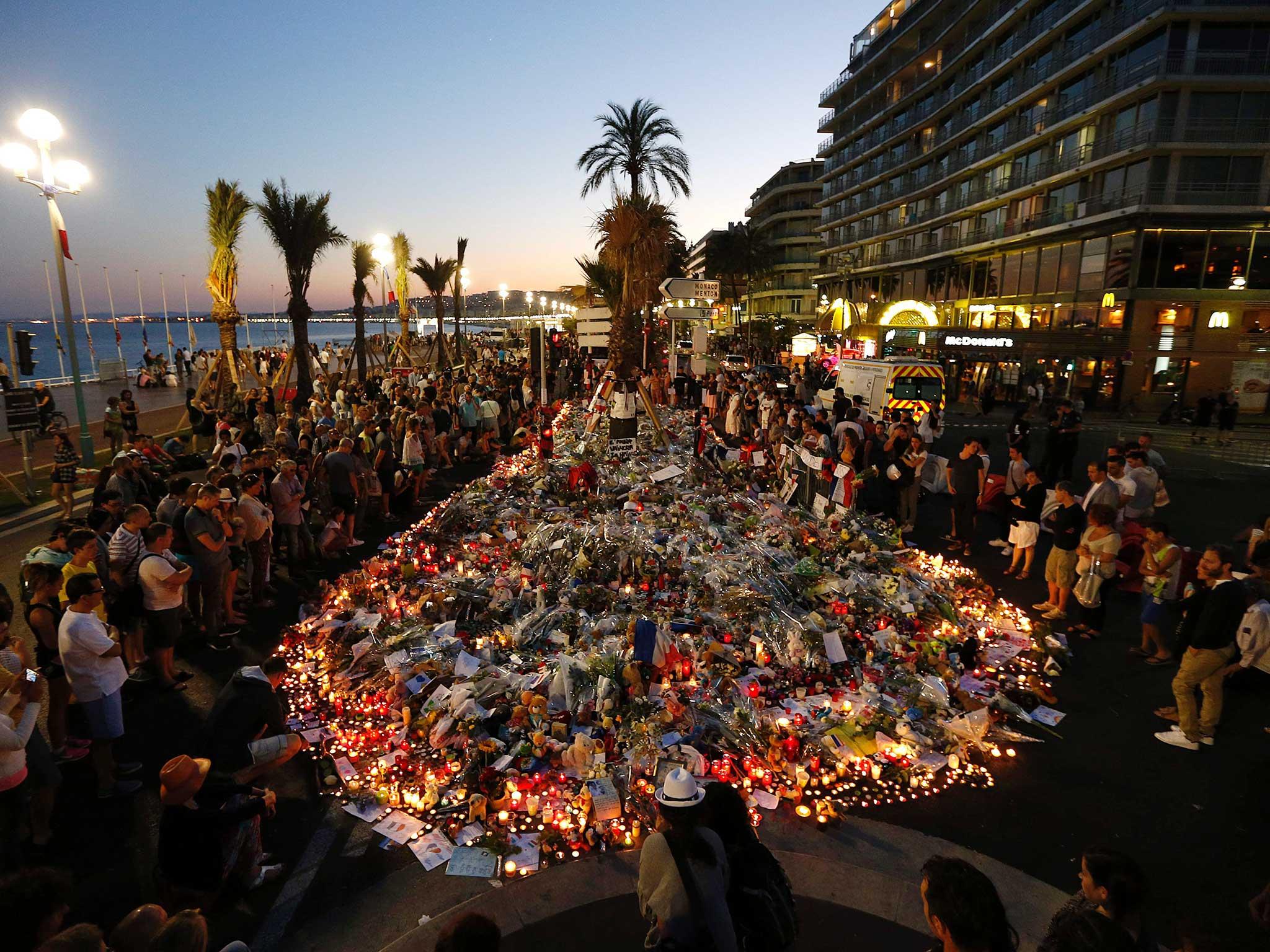The Independent's journalism is supported by our readers. When you purchase through links on our site, we may earn commission.
The UK is pursuing French-style policies on extremism – but it may lead to more frequent terror attacks
The French authorities raid call centres, restaurants and bookstores, shut down premises and disrupt alleged extremists. But, as the Nice attack showed, the results aren't good

Your support helps us to tell the story
From reproductive rights to climate change to Big Tech, The Independent is on the ground when the story is developing. Whether it's investigating the financials of Elon Musk's pro-Trump PAC or producing our latest documentary, 'The A Word', which shines a light on the American women fighting for reproductive rights, we know how important it is to parse out the facts from the messaging.
At such a critical moment in US history, we need reporters on the ground. Your donation allows us to keep sending journalists to speak to both sides of the story.
The Independent is trusted by Americans across the entire political spectrum. And unlike many other quality news outlets, we choose not to lock Americans out of our reporting and analysis with paywalls. We believe quality journalism should be available to everyone, paid for by those who can afford it.
Your support makes all the difference.In the wake of the Nice attack, doubts have been raised once again about the tough French approach to countering extremism. Less commented on is the fact that the UK government is pursuing anti-extremism policies that come straight out the French playbook.
Whether it is “disrupting” non-violent extremism, or making Muslims feel that they are increasingly being monitored, the French authorities have been implementing hard-line policies for decades – and it has not done them any good.
The UK government’s pursuit of French-style tactics is unusual if you consider the two countries’ chequered history on matters of terrorism. When France was attacked by jihadist militants in the mid-1990s, it launched an unrelenting crackdown on extremist circles. French officials also poured scorn on “Londonistan” across the English Channel, where radicals were allowed to roam free.
When London was hit by the 7/7 bombings in 2005, France told Britain (with some justification) that “we told you so” and maintained its own draconian response to terrorism. The British ramped up counterterrorism policies after 7/7.
Yet my research indicates that the UK’s response to jihadist terrorism has generally remained more proportionate than that of the French – and arguably with better results. Both countries still have a considerable problem of radicalisation, but France has faced a wave of terrorist attacks since 2012 unparalleled in any other western country. Something has been going seriously wrong in its efforts to combat extremism.
The extensive monitoring of radical circles in France has unnerved many in its Arab and Muslim communities. French intelligence chiefs have talked openly of their efforts to keep tabs on adherents to “radical Islam”, such as Salafis. There is an infamous database of some 10,500 people who are suspected of links to radical Islam or jihadist terrorism.
Even if the majority of these people are extremists, there are likely to be scores of individuals in the government’s files who are far removed from any sort of violence. Nevertheless, they too have been spied on.
Some aspects of the Prevent programme risk pushing British down a similar road. While it is reasonable to expect citizens to report people who they think are supporting violence, making it a statutory duty – as the Government has done – sets off a dangerous dynamic. Putting this duty into the hands of thousands of teachers, doctors and other public sector workers means that the policy is bound to be applied inappropriately in some cases.
For example, it is fine in our society for a white teenager to make vociferous criticisms of Israel – but if a young Muslim expresses similar views, he may be reported and then subject to a higher level of scrutiny.
Any benefits of this initiative could be outweighed by the resentment that is generated when a section of the community feels itself under increasing scrutiny and held to a higher standard of appropriate behaviour than the rest of society.
The Government now wants to go a step further in its planned counter-extremism bill. It has promised to introduce “extremism disruption orders” to close down centres of extremism and disrupt radicals whose words or actions do not break any existing laws. The French have been doing something like this for years, under a programme called “the fight against radical Islam.”
The French authorities raid call centres, restaurants, bookstores and other places they think are linked to radical Islam. Premises are shut down, administrative penalties are imposed and alleged extremists are disrupted. Yet, over 10 years into this programme, the results don’t look good. France’s extremism problem is worse than ever and the alienation of many Muslims from the French state has been deepened by programmes such as this one.
British officials may think that the broader history of discrimination and disadvantage in places like the Parisian banlieues make the French case rather different from the UK. They may assume that such contextual differences will allow them to crack down on extremism without producing the negative results that France has experienced. But the question for them is: why risk it?
The benefits of a crackdown are uncertain at best and its downside is potentially huge. The government needs to realise that if it pursues policies similar to those of the French authorities, it risks bringing us closer to French-style waves of violence on the streets of Britain.
Frank Foley is a lecturer in the Department of War Studies at King’s College London and author of 'Countering Terrorism in Britain and France: Institutions, Norms And The Shadow Of The Past' (Cambridge University Press)
Join our commenting forum
Join thought-provoking conversations, follow other Independent readers and see their replies
Comments